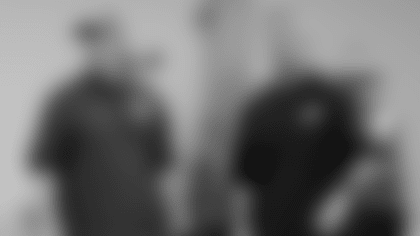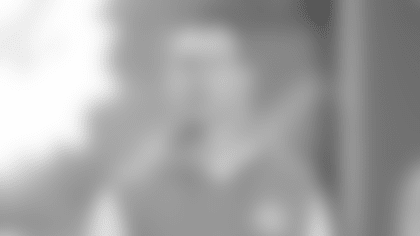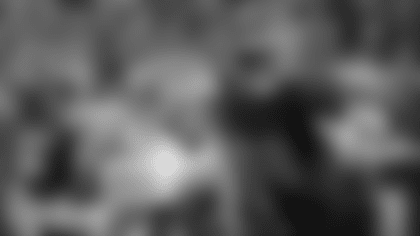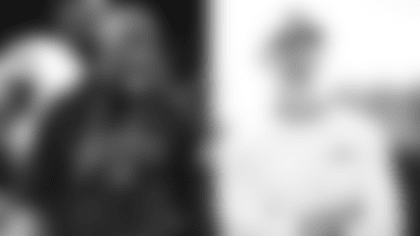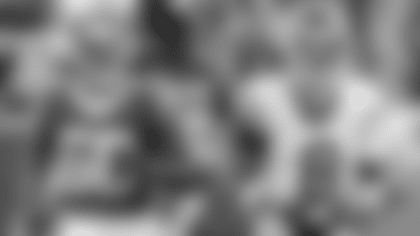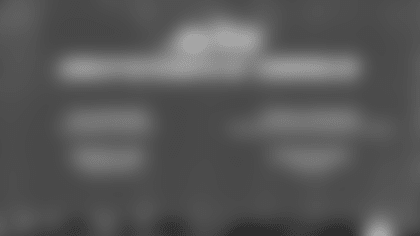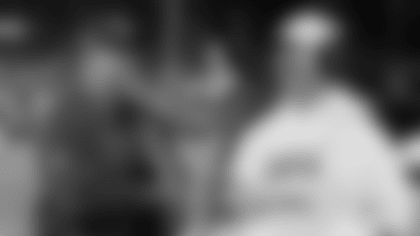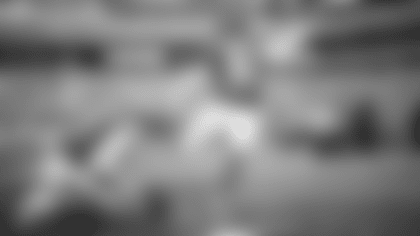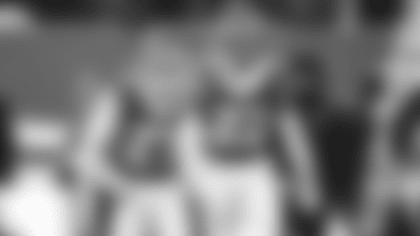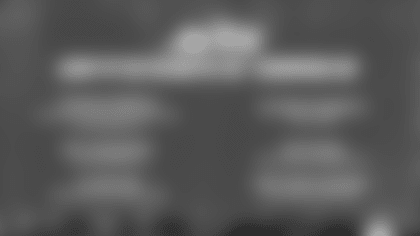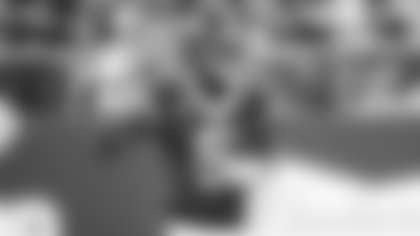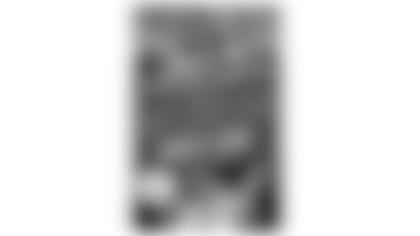
Permission statement:
This excerpt from If These Walls Could Talk: New York Jets by Marty Lyons and Lou Sahadi is reprinted with the permission of Triumph Books. For more information and to order a copy, please visit Amazon, Barnes & Noble, Bookshop.org, or www.triumphbooks.com/WallsJets.
Chapter 3 – My Rookie Season in the NFL
Back in 1979 there was no combine for the players to attend. You worked out on your own, and if an NFL team had interest in you, the team would fly you in for a private workout and physical. I stayed around the campus of the University Alabama and worked out with Barry Krauss, Rich Wingo, and Tony Nathan. We had a routine of running in the morning and lifting weights in the afternoon. I went for physicals with the Jets, Cleveland Browns, Buffalo Bills, and the Tampa Bay Buccaneers. I actually thought my best chance of being drafted was with the Browns. Looking back, those days of working out with Krauss and Wingo were unbelievable, intense, and competitive. Between the three of us, no one wanted to come in last.
Out of all the players drafted into the NFL out of Alabama in 1979, Wingo had the most productive year. With the Green Bay Packers, he was named NFC Defensive Rookie of the Year. His career would be cut short because of injuries, but he found a bigger calling when he turned his life over to Jesus Christ. He was a wild man in college just like the rest of us. But when he became a reborn Christian, he became a mentor to me. While I was still finding my way through life, Wingo had found his platform and purpose. Throughout my life I have been blessed with good friends, and none are more important than Wingo.
The draft wasn't covered like it is today with all the ESPN coverage and whatever. My oldest brother, Jim, actually called me to tell me I was drafted by the Jets before the Jets did. I called my parents and my high school coach, George O'Brien, and jumped a plane to New York filled with excitement but also filled with anxiety, not knowing what to expect. Being a first-round draft choice, expectations were going to be very high from both the Jets' side and also from my side.
The first day of rookie minicamp was pretty typical with physicals, testing, and photos. I remember the Jets wanted a picture with the rookie class, and then they wanted a separate picture with myself; Mark Gastineau, the Jets' second-round pick; and the head coach, Walt Michaels, with Walt in the middle. He looked at Gastineau and myself and said, "The name of the game is get to the quarterback."
That was the entire conversation. There was no "welcome to the New York Jets." Just get to the quarterback. Coach Michaels was old school. He was all business and not a lot of talk. That's what the NFL was all about. It's a job. You get paid to play football. Training camp was tough. All the rookies, free agents, and some of the returning first-year players reported about two weeks before the veterans. Practices were long and demanding. The Jets were changing their defense from a 3-4 to a 4-3, meaning they were adding a defensive lineman up front. I was expected to start right away. Playing defensive end was a challenge. I really didn't have the speed to turn the corner and get constant pressure on the quarterback. The one thing I learned in college, however, was technique. But technique would only carry you so far in the NFL.
The real highlight of the rookie camp was Gastineau, the second-round draft pick out of East Central Oklahoma. He had the speed to get to quarterback and would get the crowd going by doing a sack dance afterward. He was exciting, but camp took a twist when the veterans reported to practice a few days later. Guys like Greg Buttle and Joe Klecko were going to be on the practice field. Hell, both of them would be in the defensive huddle, telling us what to do. I was very fortunate that Richard Todd was the Jets' starting quarterback in 1979, and we were teammates at Alabama. When Todd was a senior, I was a freshman. So he took me under his wing and showed me the Big Apple. Surprisingly, the other two quarterbacks the Jets had were also from the SEC. Matt Robinson went to Georgia, and Pat Ryan went to Tennessee.
Everyone believed in having a routine. Rookies lifted first and got treatment second. Rookies got in line to get taped for practice. Veterans didn't have to wait; they just cut the line. I couldn't really complain about guys cutting the tape line. I just had to outthink the veterans. So after the first morning practice, I would get iced down, take a shower, and get taped before I went to lunch. It made it even easier for me to take a nap and come over a little later for the afternoon practice.
One of the first veterans I met was Klecko. He was nothing but a big hunk of muscle. He stopped me as I was leaving the weight room and asked me where I was going. I told him I was going home. He asked me if I lifted, and I replied yes. Then he told me that I needed to get stronger to play in the NFL, and I couldn't leave the complex until he did. I replied okay and started to walk off when I heard Klecko bark out, "Where are you going? Didn't you hear me?"
The bark was pretty loud, and I knew I didn't want to feel the bite so I went back in the locker room, changed, and went back in the weight room. That day created a friendship that has lasted more than 40 years. Back in the '70s and '80s, veterans didn't talk with rookies much. It was all about loyalty. There was a good chance that one of their friends, another veteran player, would be cut if draft choices made the team. Klecko was respected by every player on the team. And that 1979 team had a bunch of leaders on it. On the defensive side of the ball, we had guys like Buttle and Abdul Salaam. They gave the pregame speeches, and those speeches were classic. On the offensive side of the ball, there was Todd, Clark Gaines, Marvin Powell, and the old timer, Randy Rassmussen. He was the only player left from Super Bowl III when the Jets beat the Baltimore Colts. Rassmussen taped his hands up and held you even in a walkthrough practice when you weren't even in pads.
One of the smartest guys on the defense was Buttle. He knew the entire defense. He knew where everyone was supposed to line up and what everyone's responsibility was. Buttle was an All-American in college from Penn State, and his knowledge showed. If you don't believe me, ask Buttle himself.
During training camp the veterans had a tradition where they took the first-round pick out for drinks and then stuck them with the tab. There were several bars across the street from our training facility: Bill's Meadowbrook, the Salty Dog, and, of course, Buttle's. That one was owned and operated by Buttle, our starting linebacker. He was very generous at his bar. We ate and drank for free as long as we tipped the bartenders and waitresses. About seven of us also went to the Salty Dog for beers, shots, and a lot of laughs. I guess the veterans got the final laugh. When I excused myself to use the restroom, I returned to the bar, and everyone was gone. The bartender laughed and gave me the tab. He said, "The guys said, 'You were buying today.'" The bill was a couple hundred dollars. I paid it, didn't complain, never said "thanks, guys," and just moved on.
In the years to follow, I was in the middle of some of those future first rounders picking up the tab. Some, if not all, were a lot more than what I paid.
My rookie season roommate was kicker Chuck Ramsey. He was a great guy, but to this day, he probably still has his first Holy Communion money. I remember we went out for breakfast one morning, and the bill was like $23. "It's $15 a piece, which would leave the waitress a $7 tip," I told him.
Then he started up. "Wait a minute," Ramsey said. "You had three eggs; I only had two. You had orange juice. I didn't, and you had English Muffins, and I had toast."
Maybe he had a point. Maybe it was just another veteran trick for me to pick up the entire check, or maybe Ramsey was just cheap. I went with option two and three, though he was serious and convincing. I picked up the entire check, and that was the first and only time Ramsey and I ate Together.
After my rookie season, my next roommate was Kenny Schroy. To this day he is one of the most loyal friends anyone could ask for. The Jets went 8–8 my rookie season. We opened up at Shea Stadium against Cleveland. Early in the game, I was playing defensive end when the tight end came to my side. The No. 1 rule was not to get hooked by the tight end and to make sure to hold the edge. My old college teammate, Ozzie Newsome, was the tight end. I lined up in a wide nine position to hold the edge when Newsome looked up and said, "What's up, homie?" I started to reply. Then the ball was snapped, Newsome hooked me, and the running back ran for about 15 yards around my side. Lesson learned: hellos are for after the game not during the game. Newsome is in both the College Football and Pro Football Hall of Fame. He was a great football player, but he's a better man.
The next week we didn't play any better, losing to the New England Patriots 56–3. Yes, this was the NFL, and this was the Jets at our worst. The score was 35–3 at halftime, and the fans in Foxboro were outright nasty. The front row of the stadium was so close to the bench that the fans seemed like they were right on top of us. They called our mothers, wives, and sisters by every name in the book. I couldn't believe how creative they were. Some of the comments were outright funny. The more points New England scored, the louder they got. Buttle gave the best advice: "Don't acknowledge them."
After the game the locker room was bitterly quiet. What was someone supposed to say? We sucked. It was a terrible game by all, including the coaches. Once we got back to the airport, the flight attendants were standing outside the plane handing out a plastic bag with two beers in it. Wow, this was an eye opener. Beer supplied by the NFL after a game? Nice! The cool thing about this was when you became a veteran player, the routine continued, and you sat in the same seat every week, and the flight attendant had your beer on ice. So the motto was created: "win or lose, you always had your booze."
Somewhere in the middle of season, we were playing a home game when a fight broke out. I reacted by getting into the scrum and grabbed Klecko from behind in a bear hug and pulled him out. After getting back to the huddle, Klecko looked at me and said, "If you ever do that again, I'll kick your ass right here in front of everyone. You either fight with me or leave me the fuck alone."
This was game-changing moment for me. This wasn't college football anymore. If you got into a fight on the football field at that level, Coach Bryant would help you pack your bags and send you home. Fighting wasn't necessary in the NFL, but it was acceptable. Good ol' Klecko. I had a teammate who was going to make me a better player, a teammate who would always have my back. It doesn't get any better than that.


